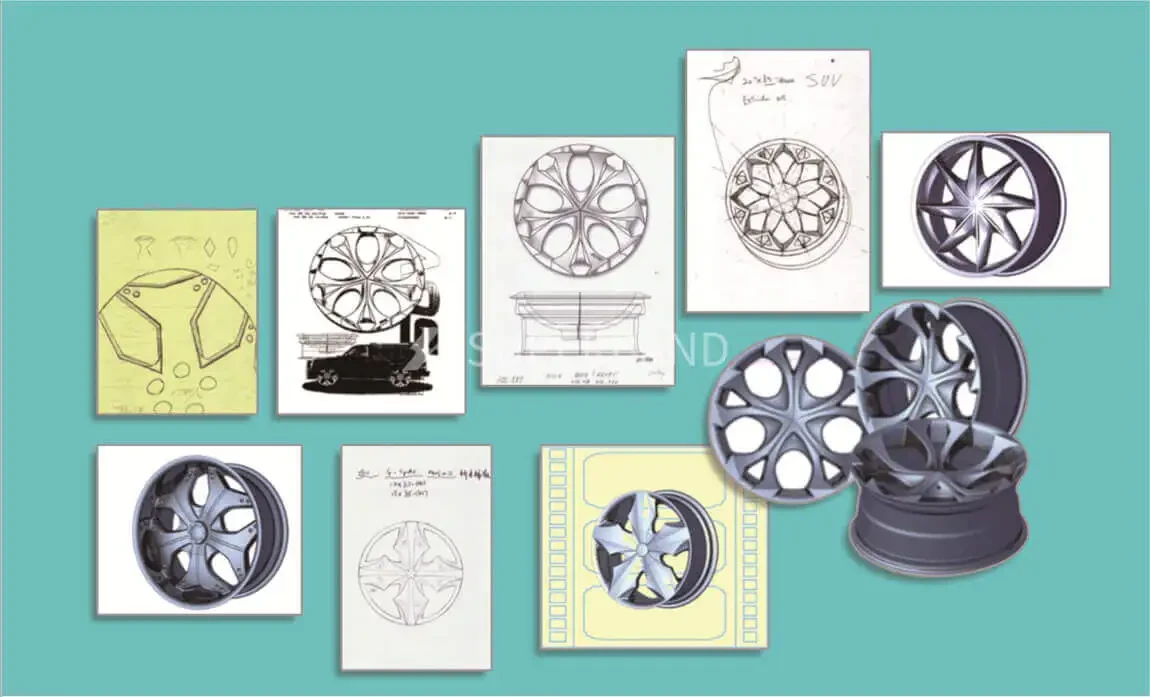2023-05-02
Flow forming casting technology changed the way that many industries manufacture high-quality, durable, and reliable products. One area that has particularly benefited from this technology is wheel manufacturing, where the use of flow forming casting has become increasingly popular due to the numerous advantages it offers over traditional casting methods.
So, how does flow forming casting differ from traditional casting methods, and what benefits does it offer?
First, let's examine traditional casting methods. Casting has been used for centuries to produce a wide range of products, including wheels. The process involves pouring molten metal into a mold and allowing it to cool and solidify into the desired shape. Once the metal has solidified, the mold is opened, and the part is removed.
While traditional casting methods have been used for a long time and are still used today, they have some limitations. One of the main drawbacks of traditional casting is that it can lead to porosity, which weakens the final product. Porosity occurs when air pockets become trapped in the metal during the casting process. Additionally, traditional casting can result in a non-uniform grain structure that can affect the strength and durability of the final product.
In contrast, flow forming casting is a more advanced and precise manufacturing process that overcomes many of the limitations of traditional casting. Flow forming casting involves using a spinning machine to create the final shape of the wheel. The spinning machine uses a combination of pressure and heat to reshape the metal into the desired shape, resulting in a stronger, more uniform grain structure.
The flow forming casting process starts with a cast disk of aluminum that is heated and then mounted onto a spinning machine. The machine spins the disk at high speeds while simultaneously applying pressure to the metal, gradually stretching and reshaping it into the desired shape. This stretching and reshaping process results in a much stronger and more durable wheel compared to traditional casting methods.

Flow forming casting is a more advanced and precise manufacturing process that offers numerous advantages over traditional casting methods.
One of the key advantages of flow forming casting is the ability to create wheels that are both lightweight and strong.
This is because the flow forming process creates a denser, more uniform metal structure, reducing the weight of the wheel while increasing its strength and durability. Additionally, the flow forming process allows for greater customization options, enabling manufacturers to create wheels with unique designs and finishes.
Another benefit of flow forming casting is that it results in a more precise final product.
The spinning machine used in the process allows for greater control over the shape and dimensions of the wheel, ensuring that the final product meets the desired specifications. This precision also helps to reduce waste and minimize errors in the manufacturing process.
In terms of cost, flow forming casting is typically more expensive than traditional casting methods.
However, the benefits of flow forming casting, including its strength, durability, and customization options, often make it a worthwhile investment for manufacturers and consumers alike.
Flow forming casting can be used with a variety of metals, including aluminum, steel, and titanium. However, aluminum is the most common material used in wheel manufacturing due to its strength, durability, and lightweight properties.
Flow forming casting typically results in lighter wheels than those produced through traditional casting methods. This is because the process creates a denser, more uniform metal structure, reducing the weight of the wheel without compromising its strength and durability.
Flow forming casting allows for greater customization options than traditional casting methods. Manufacturers can create wheels with unique designs, finishes, and dimensions, allowing them to meet the demands of car enthusiasts and racing teams who are looking for wheels that stand out from the crowd.
Flow forming casting creates wheels that are stronger, more uniform, and more customizable than those produced through traditional casting methods. While flow forming casting may be more expensive, its benefits make it an attractive option for manufacturers looking to produce high-quality wheels that meet the demands of car enthusiasts and racing teams.